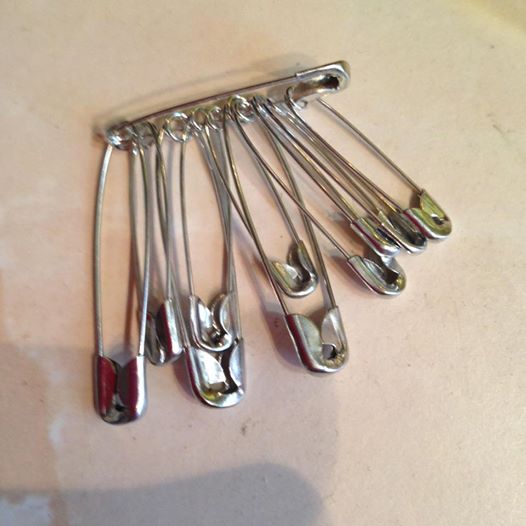I have been asked twice recently why people need labels for sexual orientations and gender identities; one person commented, “aren’t we all just human beings?” People have also wondered if we need theological labels like ‘polytheist’, ‘pantheist’, ‘monist’ etc.
To me this question is a bit like asking why we need names for things. We say sun instead of “local fusion reactor that is almost perfectly spherical and consists of hot plasma interwoven with magnetic fields” because it is shorter and universally understood as the English word for the big hot yellow thing in the sky.
The most obvious reason why we need labels is as a short way of describing a complex concept or identity. New labels for subgroups emerge all the time as people discover that what they mean by a word is not the same as what others mean by it. For example, if you have a broad definition of ‘male’ which includes transgender men, cisgender men, genderqueer men, gay men, bisexual men, straight men, and so on, then it comes as a shock if you come across someone whose definition only includes cisgender heterosexual men, and they may want a different label to indicate what they mean by the term ‘male’, since their definition is narrower.
Similarly, if you are a polytheist who believes the gods and goddesses are discrete entities, you may want to describe yourself as a hard polytheist. If you are a polytheist who has a devotional approach to the deities, you may want to describe yourself as a devotional polytheist, because what other people mean by polytheist might not sit well with your idea of polytheism.
The other main reason for needing a label for your subgroup is as a way of finding like-minded others. If you are a man who is attracted to other men, it helps to identify as gay or bisexual so that you can find other men-loving men.
Interestingly, it is usually people who are part of a hegemonic group who can’t see the need for labels. For example, there has been a great deal of resistance to the use of the term cisgender to describe people who have the same gender identity that they were assigned at birth. Similarly, some heterosexuals resisted the label heterosexual. Such people claim that they don’t need a label because they are “just normal”. I would strongly resist the idea of any kind of identity being “normal”, but even though cisgender heterosexuals are in the majority, I still think we need labels to describe cisgender and heterosexual, so that we know what we are talking about when we refer to people who identify as the same gender they were assigned at birth, and people who are attracted to people of the opposite gender to themselves. Given that the term cisgender was coined in 1904, and the term heterosexual was first published in 1892, they are hardly new-fangled terms.
As a genderqueer person, I resist the gender binary – the idea that people fit neatly into one of two monolithic gender categories with little or no overlap between their behaviours and interests. My partner came up with another label, postgender, to describe a person who rejects all gender norms and just wants to be themselves.
The person who actively resists the proliferation of categories of identity is typically someone who is part of the dominant paradigm and doesn’t want to think about other people’s needs, or change their current way of classifying people.
One situation in which variant theological and gender identities challenge the hegemonic paradigm is that of ritual. If your ritual setup is based on the assumption that there is one God and one Goddess, and they are cisgender heterosexual lovers, and that there are two major energetic polarities, “male energy” and “female energy”, then this will create the assumption of ritual norms such as making participants stand in a pattern of alternate male and female. This set of assumptions breaks down completely if you have people with different gender identities such as genderqueer or transgender (unless you allow a trans person to play the ritual role of their true gender, the one they actually are, not the one they were assigned at birth), and people of different sexual orientations who may experience magical polarity with someone of the same gender. Most people seem to assume that polarity in ritual involves a component of sexual attraction, even if this sexual attraction is never acted upon. Therefore it makes sense for gay and lesbian people to work with someone of the same gender (such as their partner, where the sexual attraction is reinforced by their physical lovemaking).
Similarly, assumptions that “all the gods are one God and all the goddesses one Goddess” or even that they are all aspects of a single Divine Unity will affect how you address and described deities in your rituals, hence the need for polytheists to devise our own traditions and rituals that are meaningful to us, or adapt existing traditions.
On the matter of rituals that are meaningful for people of all gender identities and sexual orientations, some people have suggested that gay and lesbian people form their own ritual traditions – and these do exist (the Dianic tradition and the Minoan tradition, for example). However, as a bisexual person, a “homocentric” ritual would be just as excluding of my identity as a heterocentric one. So my preference is to develop ritual formats that include everyone. A polytheistic perspective helps with this because deities can have multiple genders, different sexual orientations, and fluid identities. These can be found in many myths.
Identities and labels and categories are fluid and evolving. Typically, new ones emerge when people find that they don’t fit in an existing paradigm, or need a word to describe the opposite of what they are. Labels are useful because they enable people to find like-minded others for socialising, ritual, conversations, friendships, and relationships. Of course they are all subcategories of people, but when you consider how wonderfully diverse people are, we need categories to help us understand one another.















